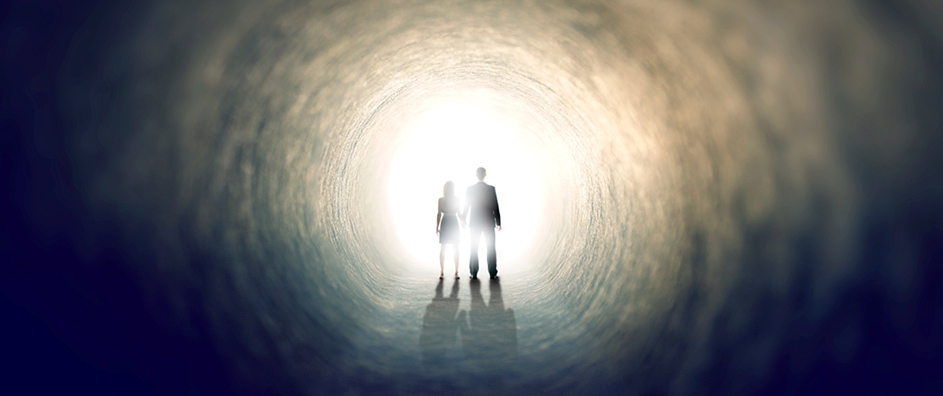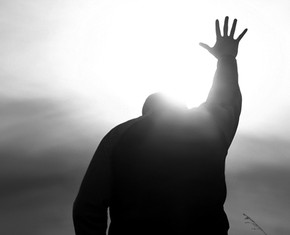The views expressed in our content reflect individual perspectives and do not represent the authoritative views of the Baha'i Faith.
In man five outer powers exist, which are the agents of perception — that is to say, through these five powers man perceives material beings. These are sight, which perceives visible forms; hearing, which perceives audible sounds; smell, which perceives odors; taste, which perceives foods; and feeling, which is in all parts of the body and perceives tangible things. These five powers perceive outward existences.
Man has also spiritual powers: imagination, which conceives things; thought, which reflects upon realities; comprehension, which comprehends realities; memory, which retains whatever man imagines, thinks and comprehends. – Abdu’l-Baha, Some Answered Questions, p. 210.
Losing your memory means you undergo a gradual loss of identity. Because people now live longer than ever before, we probably all know someone—a friend, a grandparent, a dear relative—who has suffered from severe memory loss.
When it happens, recent experiences and acquaintances fade first, followed by those from earlier in life, until the afflicted person doesn’t recognize their closest relatives or friends, and ultimately doesn’t seem to know who they are. We know that memory loss comes about because of deterioration in the brain.
If the identity of a victim of memory loss survives death, then that person’s life memories must somehow be restored in the next world. Some of these memories may, however, have been irretrievably lost years before death. How can these survive?
Some individuals depart this life suddenly. They may die in an accident, get shot or suffer a heart attack. In the few seconds separating life from death in these cases, the notion that a lifetime’s worth of memories can somehow escape intact defies reason. There simply isn’t time for such a massive transfer of information to occur.
 Even amongst those who enjoy a more leisurely passing, memories are fallible. We have all discovered that others have a different memory of events from our own. We have all, surely, observed that other’s memories are curiously self-serving. But if no one else has memories that exactly coincide with our own, aren’t we forced to conclude that even our memory may be suspect–that we may be guilty of applying judicious spin to our recollections?
Even amongst those who enjoy a more leisurely passing, memories are fallible. We have all discovered that others have a different memory of events from our own. We have all, surely, observed that other’s memories are curiously self-serving. But if no one else has memories that exactly coincide with our own, aren’t we forced to conclude that even our memory may be suspect–that we may be guilty of applying judicious spin to our recollections?
Eternity is a long time. Our justifying, defensive, self-centred memories, while agreeable in the short term, may not go the distance, may not retain the necessary ring of truth.
My own memories are also incomplete–and I suspect you will agree that yours are, too. How then, in the next world, can we learn from our experiences of this life if our memories of it are so incomplete, error-prone and biased? Surely we can’t answer to our Creator in the afterlife with, ‘I don’t remember’ or ‘That is not as I recall it,’ and sail through to bask in self-congratulation.
It follows, then, that the existence of an afterlife has a necessary corollary: that an accurate, objective record of our life be available and that, when we die, we gain access to it forever. How can this be accomplished? Some believe that angels keep track of a person’s good and bad deeds and write them all down. But, what if a recording process within us does this job automatically? If so, it would have to involve a different kind of memory, one that recorded objectively, without built-in filters or interpretation. It would have to be tamper-proof, a kind of ‘black box’ flight-recorder for each day of our life’s journey. Is this conceivable?
Identity and Different Kinds of Memory
Science doesn’t yet completely understand just how human memory works. Basic discoveries are still being made. In a 2005 article in the journal Nature, the ability of a single human brain cell to store memories is reported for the first time by a research team led by neuroscientists at UCLA and Caltech:
In a third subject, a neural unit in the left anterior hippocampus responded to pictures of the landmark Sydney Opera House and Baha’i Temple, and also to the letter string “Sydney Opera,” but not to other letter strings, such as “Eiffel Tower.” – Quiroga et al, 2005.
Until very recently scientists thought our memories resided in networks of connected neurons. This more recent discovery calls that idea into question. Clearly, the current state of our understanding of human memory has its limits. Some individuals have extraordinary and very different memories from the rest of us. Autistic savants such as Stephen Wiltshire (see www.stevenwiltshire.com; or http://en.wikipedia.org/wiki/Stephen_Wiltshire) have demonstrated a remarkable visual memory. The writer and psychologist Oliver Sacks even devoted a chapter (Prodigies) to Stephen in his book An Anthropologist on Mars. Stephen’s website accurately describes a TV program that I watched with fascination a few years ago:
Perhaps the most striking and astonishing display of Stephen’s visual memory and drawing ability occurs in a segment on a 2001 BBC documentary entitled Fragments of Genius. In this segment Stephen is taken on a helicopter ride over the city of London. After a brief ride, he returns to the ground where, in three hours, he completes a detailed and remarkably accurate drawing of London from the air which spans four square miles with 12 major landmarks and 200 other buildings drawn to perfect perspective and scale.
Stephen cannot count beyond the number six, yet, when he draws a building it is exact and correct, even to the numbers of windows. What seems to link people with such abilities? Typically they suffered brain damage at some time in their life, either congenitally, at birth or from an accident. This fact has led some to believe that their abilities are in fact possessed by everyone–but are only revealed when something else in the brain is absent, damaged or suppressed.
The Centre for the Mind, a joint venture between the Australian National University and the University of Sydney, sponsored this research. Savants have gained access to parts of the brain not accessible to most of us, its driving hypothesis concludes. Where does this striking memory disappear to as we age? I suspect that it is recruited to another, hidden purpose and is concealed rather than destroyed.
















Comments
Sign in or create an account
Continue with Googleor